Iran Expecting New Wave Of Covid As New Year Holidays Come To End
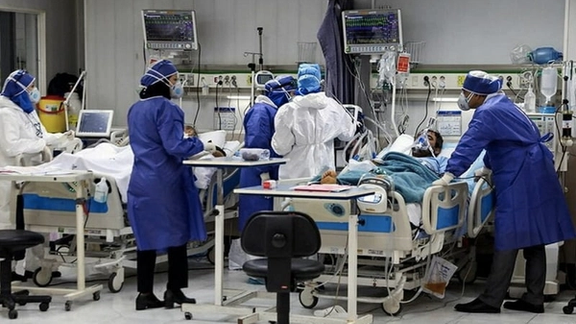
Iran's daily Covid infections have risen alarmingly as two-week New Year (Nowruz) holidays come to an end with 627 people admitted to intensive care this week.

Iran's daily Covid infections have risen alarmingly as two-week New Year (Nowruz) holidays come to an end with 627 people admitted to intensive care this week.
Hossein Farshidi from the country’s Ministry of Health warned that a new wave of Covid-19 has seen 13 cities put on “red alert”.
The festive season which began on since March 17 saw hundreds of thousands of Iranians travel the country to visit friends and take holidays.
Iranian media quoted Hamid Souri, a professor of epidemiology at Shahid Beheshti University of Medical Sciences that "Due to the progressive nature of the pandemic and the high pathogenicity of Omicron sub-variants, this process can become volcanic.”
Warning that the new wave should be taken seriously, Souri urged the Ministry of Health and government agencies to “quickly control the outbreaks.”
The slow rate with which the red alert was issued garnered criticism on social media where those who have fallen ill criticised the response.
Iran was the second country after China where the pandemic started in February 2020 and according to disputed government figures has killed more than 145,000 people. However, some government officials and doctors have said that the actual death toll was at least twice more than what the government has announced.
Iran was also slow in vaccinating its population, because Supreme Leader Ali Khamenei banned Western vaccines in January 2021.
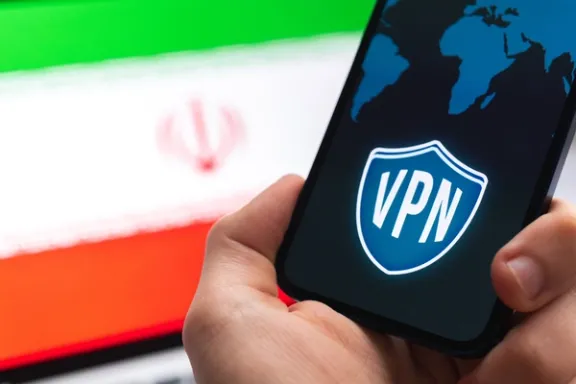
If you live in Iran, you are likely to need not one, but several virtual private networks (VPNs) just to be able to make a simple WhatsApp call or check your Instagram.
Millions of Iranians circumnavigate internet restrictions imposed by the government by purchasing VPNs or downloading them from the internet on their phones and computers. Those that are for free often do not work, but quite often the paid VPNs also fail to work as the authorities continuously identify and block them. Such restrictions have hugely increased since anti-government protests that ensued after the death of the 22-year-old Mahsa Amini in ‘morality police’ custody in late September.
DATA.AI’s map application rankings and store data indicate that five of the top applications used by Iranians and downloaded from Google Play belong to the VPN category with the rest consisting of communications and social media applications including WhatsApp, Telegram, Instagram, Twitter and YouTube all of which are blocked.
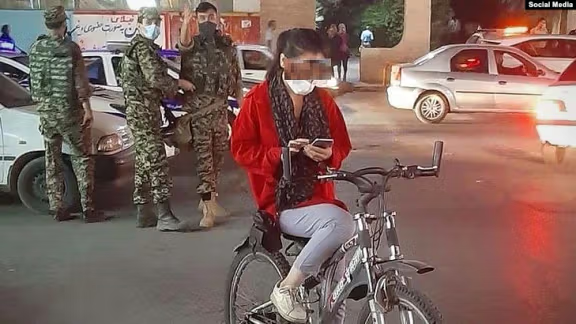
Google also said in October there was a spike in demand from Iran for its Jigsaw subsidiary's open-source Outline tool which allows third parties to set up secure VPNs resistant to disruption and censorship efforts.
Currently Google Play, where users could download VPNs, and occasionally Google Maps, Google Chat and Google Meet also become unavailable depending on the type of VPN one has installed on their devices.
“Only with a proxy [server] and with difficulty I can open my Telegram to download configurations that let me open Instagram and WhatsApp. I need another anti-filtering software for Twitter and heavy applications that have to be downloaded from Google Play which is also blocked,” a twitter user wrote Tuesday, and damned the Islamic Republic for making online access so difficult.
This viral video on Instagram shows a monkey hitting his phone angrily and swearing for not being able to connect to any of the “100s of VPNs” installed on the phone
"Daily demand for virtual private network (VPN) services in Iran is up over 3,000% compared to before the protests," Simon Migliano, the head of research at Top10VPN, told Axios in October.
Government restrictions were meant to stop people from sharing news and images of the protests that could motivate a larger segment of the population to join in. There are much fewer protests now, but the use of VPNs appears to have continued to grow as the government keeps its hold on the flow of information.
In January, the judiciary and the ministry of communications said they would take legal action against "unauthorized” providers of VPNs and internet circumvention tools.
By blocking access to applications such as WhatsApp and VPNs that make access to them possible, authorities are trying to force Iranians to use domestically-developed applications such as Soroush, Eitta, and Bale but many Iranians do not trust these applications which they say the government can control and use for spying on them.
Many VPNs are not safe, either. In January, Bitdefender, a private cybersecurity company, revealed information about an Iranian spyware that stole users’ sensitive information through a VPN software.
Extensive filtering has highly damaged internet-based businesses and around 10 million whose livelihoods depends on selling their products and services by advertising on social media. Small businesses, particularly those run from homes by women or small farms in rural areas whose numbers exponentially grew after the Covid pandemic, very heavily relied on Instagram for advertising and WhatsApp for communication with potential customers.
Officials, including Supreme Leader Ali Khamenei, have repeatedly criticized free access to the internet in recent years, and have been trying to prevent the free flow of information by expanding the National Information Network (NIN), a national intranet.
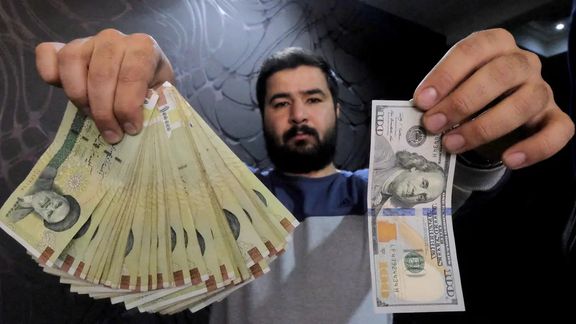
The Iranian rial has witnessed a 94% decline in the last decade as the economy plunges further into darkness, according to recent reports.
In research by The Economist, it shows the rial reached its lowest value in February.
“In February the rial dropped to an all-time low of around 580,000 to the dollar, leaving it 55% weaker than a year before and 94% down over a decade,” the report claimed.
While the country goes through a crippling depression, the Supreme Leader continues to use the term, "Resistance Economy", to convince the people the government will be able to endure the impact of its long-term sanctions, in spite of its intransigence in negotiations over the nuclear talks which further impedes the economy's recovery.
“The miserable state of the economy, in turn, has exacerbated the protests that erupted in September after Mahsa Amini, a young Iranian woman, died in the custody of the morality police in Tehran. Though the crowds have ebbed, unrest still smolders…,” added the report.
The Islamic Republic has been struggling with high inflation since 2019, but the raging inflation in the past Iranian year which ended on March 20, was seriously different from previous years.
Last May the government eliminated an annual food import subsidy of at least $10 billion, that immediately led to steep price increases. This was followed by a fall in the value of the national currency, making imports more expensive for the population.
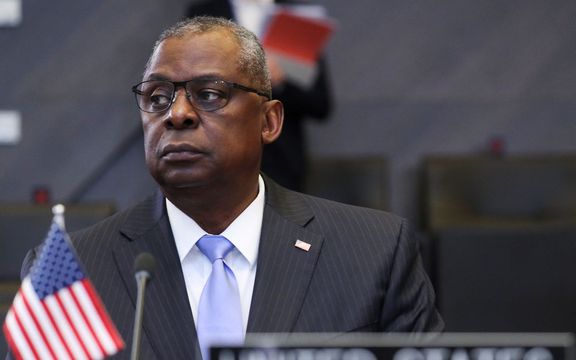
Top US defense chiefs faced criticism from the Senate Armed Forces Committee Tuesday claiming the response to Iranian attacks on US forces is weak and lacks deterrence.
Of 83 attacks in Iraq and Syria since President Joe Biden took office, just four retaliations have taken place. Last week, two attacks targeted bases in Syria killing one American contractor and injuring several servicemen.
Senator Tom Cotton, addressing the United States Secretary of Defense, Lloyd Austin, said, “What kind of signal do we think this sends to Iran when they can attack us 83 times since Joe Biden has become president and we only respond four?”
The weak US approach to Iran has been a thorn in Biden’s side as the Democrats try to keep channels open with Tehran in the hope of reviving the nuclear deal, the JCPOA. Long-running talks to restore mutual compliance with the accord broke down last year after Iranian intransigence.
Senators voiced similar criticism in another hearing on Monday.
“Maybe it's because they [Iran] know that we will not retaliate until they kill an American, which emboldens them to keep launching these attacks which kill Americans,” Cotton added.
His sentiments were echoed by Senator Jacky Rosen, who asserted that Iran’s militias are the “most pervasive threat to US and coalition forces in the region”. The Trump administration designated Iran’s Revolutionary Guards Corps (IRGC) a terrorist organization in 2019.
Austin defended the strategy, claiming that US troops — of whom there are around 900 based in Syria to keep pressure on the remnants of the Islamic State group and support the Kurdish-led Syrian Democratic Forces, which control most of the north-east — have the ability to protect themselves.
He added that lower profile local responses have been carried out which are not always made public like the four more high profile attacks, over the years, the forces having been subjected to many attacks from Iranian militias.
In tones which reflect the softly approach of the Biden administration, he stressed that responses are measured to ensure they are taken against the correct elements responsible, saying it “takes a little time to develop attribution”. He added that the Department of Defense is “doing everything that we can to protect our troops”.
The news about last week's attack did not get sent to congress for almost 24 hours, meanwhile, the issue of Iran was being debated for key policy decisions at the same time.
The attack occurred the same day that senators voted down an amendment from Sen. Marco Rubio which would have required President Biden's administration to prove that Iran was no longer providing support to proxy groups.
The delayed communication created outrage among senators who said such vital information should have been relayed immediately, allowing a better informed decision to be made. While Austin insisted the information was relayed as soon as possible, his attempts to appease congress fell on deaf ears.
“I don't believe you,” slammed Senator Cotton. “I believe that your office specifically withheld notification of this deadly strike against Americans because of the Rubio amendment on which we voted at midday directly touched on exactly this scenario, not repealing the use of force resolutions,” suggesting that the information was withheld because “the President couldn't certify that Iran was no longer attacking us in Iran and Syria”.
Lloyd denied the allegation, claiming it was “absolutely not true”, but it failed to change the anger felt by senators on the silence. "Maybe you didn't personally do it, but I believe entirely that people in your office did that,” added Cotton. Feeling the heat, Austin tried to say the delay was due to the speed with which the attack was carried out and the response put into place, apologizing, with the assurance that “we will do everything in our power to improve our performance”.
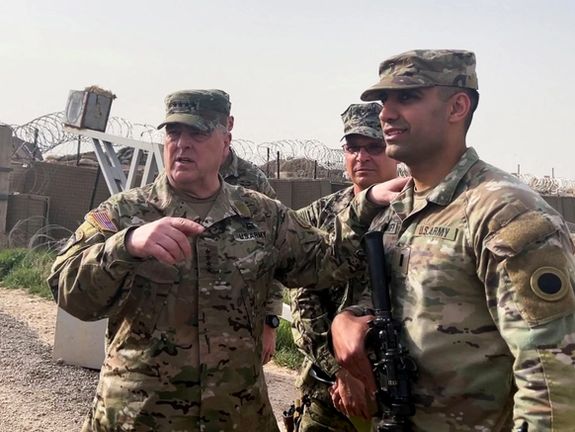
General Mark Milley, speaking at his last ever senate testimony serving as the 20th Chairman of the Joint Chiefs of Staff, assured senators when asked what is being done to proactively deter the ongoing attacks on US facilities.
While Austin had said Quds Force infrastructure was being targeted, Milley said the Department of Defense owes congress “better numbers”, the local and more low-key attacks if known, adding a better picture of the response being taken in addition to breaking down the 83 attacks from Iran’s proxies into more realistic numbers of those hitting US facilities and those landing two to three kilometers away.
“Working with our indigenous allies and partners is key,” he said and “messaging Iran is critically important”. The Quds Force and IRGC is the US’s main target, Milley added, vowing “very harsh” action now and in the future.
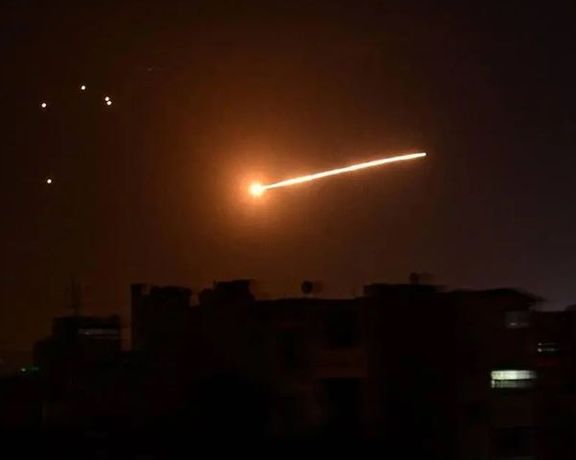
Israel launched missiles from the Golan Heights targeting the vicinity of Syria's capital Damascus, on suspected Iranian military targets.
The Syrian Observatory for Human Rights, a British-based war monitor, said it was the fifth Israeli strike on Syria this month. Israeli rarely comments on such attacks.
Israel has for several years been mounting attacks on what it has described as Iran-linked targets in Syria.
On March 22, an Israeli strike near the northern Aleppo airport put it briefly out of service. Regional intelligence sources said the attack hit an Iranian arms depot.
Iran-backed groups then fired rockets at a base hosting US forces in the northeast, killing one American contractor and wounding another, as well as several troops. The US responded with air strikes on installations in eastern Syria that it said were affiliated with Iran's Revolutionary Guard.
Tehran-backed forces, including Lebanon's Hezbollah, have established an entrenched presence around the Syrian capital as well as in the country's north, east and south as they helped President Bashar al-Assad fight back insurgents.
On Feb. 19, an Israeli strike hit a building in the central Damascus neighborhood of Kafr Sousa, killing five.
Sources told Reuters that it hit an installation where Iranian officials were meeting to advance programs to develop drone or missile capabilities of Tehran's armed proxies in Syria.
Residents of Damascus wrote on social media early on Thursday that a series of loud booms could be heard over some districts.
"I was going to die of fright," said Lana, a Syrian woman who was spending the night with her infant son in a hospital in the Damascus district of Mazzeh.
"The sound made me feel like the whole hospital was going to collapse on us," she told Reuters.
Reporting by Reuters
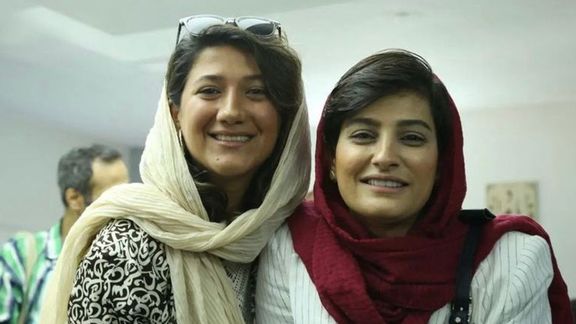
Two imprisoned journalists have been awarded Harvard’s Lyons Award for Conscience and Integrity in Journalism while they serve time for reporting the death of Mahsa Amini.
Niloofar Hamedi and Elahe Mohammadi were arrested six months ago for coverage relating to the controversial death of the young Iranian-Kurd, who died in morality police custody, sparking months of nationwide protests.
The Nieman Fellows Foundation for Journalism at Harvard University honored the journalists, who worked for Shargh and Hammihan respectively, for their “steadfast commitment to producing courageous journalism”.
“Hamedi and Mohammadi put their livelihoods and lives on the line, and lost their freedom in the process,” said the statement. “They knew the grave risks they might face but remained committed to telling Amini’s story. Journalists in Iran are risking their lives on a daily basis to report on the conditions and oppression there.”
Since the protests began around 70 journalists have been arrested and many others warned about their coverage of dissent and their public comments.
The Nieman Fellows will honor Hamedi and Mohammadi in absentia during a ceremony this spring.
The Nieman class of 1964 established the Louis M. Lyons Award in honor of the Nieman Foundation curator who retired that year after leading the institution for a quarter of a century. Lyons was a forceful advocate for freedom of the press.
The two Iranians join a long list of over 1,700 journalists from 100 countries to have been awarded Nieman Fellowships since 1938.